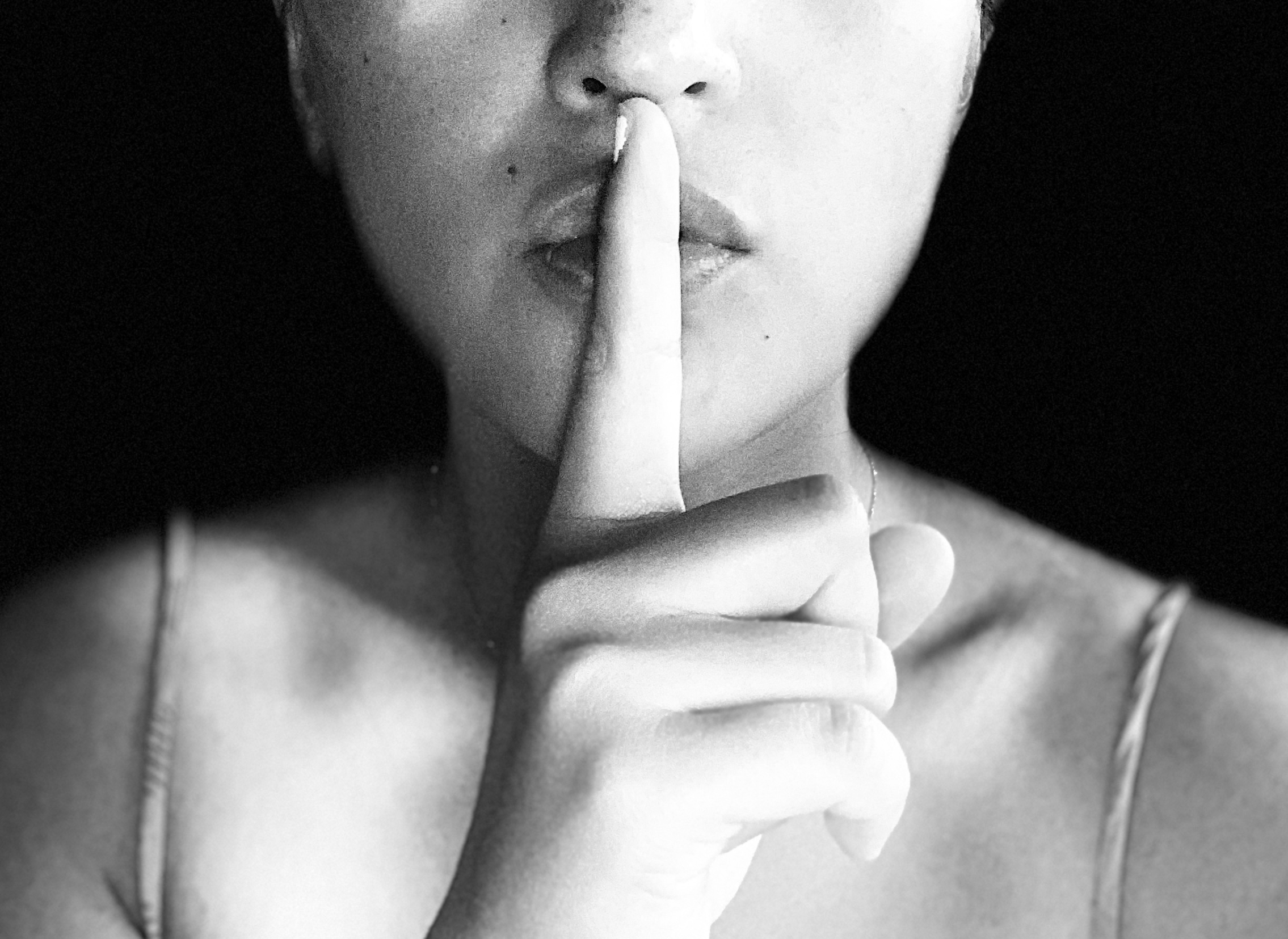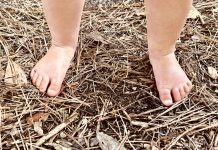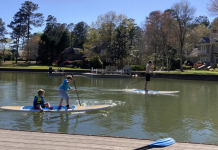
This is an uncomfortable post for me to write. I have deleted and restarted it more times than I want to admit. It is uncomfortable because I have to address the topic of being a minority, something I have often refrained from purposefully addressing, and it is scary because I have to acknowledge that I cannot protect my children from potential harm.
Please understand that this post is not meant to place blame on any specific person. Please also understand that this post is merely intended to address the elephant in everyone’s room, especially in light of the recent events around our country. It should not take an event like the loss of George Floyd’s life to bring up meaningful discussions about racial equality.
I have learned to be silent.
As a first generation Asian American, I have seen the world through more than one lens. I was born and raised in China for the first nine years of my life. It is a world that seems so distant from my life now, but also a world of which I have vivid memories. I can’t speak for all Asian countries or cultures, but the one I grew up in taught me to be silent. It may have something to do with me being born a girl, but I learned that suffering is done in silence and behind closed doors. I learned to not make a big deal out of anything but to accept my fate. It was probably a means of self-preservation.
Interestingly, I also learned to revere white people. I somehow understood that they were “superior.” I remember there was a little girl in my elementary school class (probably second grade because I remember it well) in China who was half-Caucasian. She had the most beautiful caramel brown curls and wide eyes and smooth pale skin. She was beautiful, and I wanted to be her. I also remember feeling intimidated by her and that she was “better” than me solely based on the color of her skin.
I also remember the first time I saw a white person. My parents were both professors at a university, so I played on campus quite often. The white man was a student or a research fellow at the university, and I remember following him around the campus with my friends. We would hide behind buildings when he would turn around and giggle like silly kids. I was brave enough to run up to him and touch his arm, then run back to my friends. I was very happy that day.

Shortly after I turned nine, I moved to America — Massachusetts, to be specific. I was a shy kid, but that coupled with not understanding the language made me a hermit. I cried a lot. I was very lonely. We were poor, and I ate free school lunches. But I was fortunate to have some kind kids in my class who took me in. I remember a blonde girl named Kate saying, “Come on” and gesturing for me to follow her to lunch one day. She took my hand, and that was the first time I had ever touched anyone with blonde hair. I remembered the way “Come on” sounded and went home that day and asked my mom what that meant.
As the years went on in Massachusetts, I was fortunate to meet more kind people of all colors, including one family who took me in as their own. The parents are now my self-proclaimed “godparents,” and their daughter, my school aged friend, is one of my oldest friends.
We moved to a different school system essentially every two years, hopped around states (including Louisiana where I enrolled in a magnet high school with predominantly black students), and ultimately to Alabama. Throughout my life, I am lucky to say that I have never personally been the subject of a racial attack because of the color of my skin. That’s not to say, however, that jokes and words have not been spoken to me or in my presence that should have raised eyebrows. My need for self-preservation treated those jokes and words as just that — jokes. My upbringing of staying silent was further necessitated by my crucial need to fit in as much as possible and not be any more different that I already was.
For example, I remember a discussion in high school where someone said I must love rice because I am Asian. Due to my upbringing, every time I encountered one of those passing phrases or conversations that was uncomfortable, I remained silent. I don’t remember my response to the question, but I am sure it was something to brush it off and change the subject. More recently, in court, an opposing counsel was making an argument and used the phrase “chink in the armour.” For those of you who do not know, “chink” is a very derogatory word against Asian people. Again, I did not bring it up or make it a big deal, but I wondered why, out of all the phrases he could have used, he chose that one. While not directly spoken to me, the current pandemic has also spurred terms such as the “China Virus” and jokes about Chinese restaurants serving bats.
If those jokes and conversations were meant directly for me, my self-preservation mode prevented me from speaking up about it. But just because I stayed silent does not mean that I was not bothered by it.
What can I do to protect my children?
My children’s father is a 6’3” blonde-ish white man. We live in a predominantly white-collar community with very little diversity. In fact, we joke that we live on the most diverse street in Mountain Brook because there is one mixed-race family also living on our street.
My children are young — four, four, and two — and they have not (yet) experienced any racially targeted speech. They are, essentially, the only children of color in their daycare and will likely be among the very few minorities in their school. I know it’s coming and as much as I would like to protect them from it for the rest of their lives, I know that I cannot.
What I can do, however, is start the conversation early. It is on me to teach my kids that they are as valuable and worthy as their white counterparts. For one reason or another, I grew up with an inherent bias against myself and an unreasonable understanding that pale skin and wide eyes were more desirable. I will not, I repeat, will not have my children believe the same.
I know that I have a different perspective on the issue of race and racial targeting from most of my friends in my community. For those of you reading this, I urge you to have discussions with your children about the worth of every human, the equality of every person, and the beauty of color. My newsfeed is filled with reposts about justice, racial equality, and hashtags of #BLM. But Guys, it starts within your neighborhood. It starts with you asking your friends of color about their take on it. It starts with you talking to your kids and educating them. I had a social distancing gathering with some friends this week, and one of them asked me directly if I have ever felt any racial tension. I think that was the first time I have ever discussed the topic with any friends.
A little while back, a friend’s daughter (who did not remember me) said this to me as soon as I walked in: “You look . . . different.” Yes, I may look different. Thank goodness people all look different, because what a boring world it would be otherwise. Let’s embrace our differences and recognize their value. Let’s start a conversation and learn together.
Again, this post is not meant to diminished the voices of the black community or take focus away from pursuing justice for George Floyd, Ahmaud Arbery, Botham Jean, Atatiana Jefferson, and countless others. It is merely an additional perspective from a silent demographic.
Don’t pity me or any other person of color for any experiences we may have gone through. Instead, talk, listen, and learn. Please reach out to me if you have any questions or want to continue this discussion.
P.S. I do love rice.











